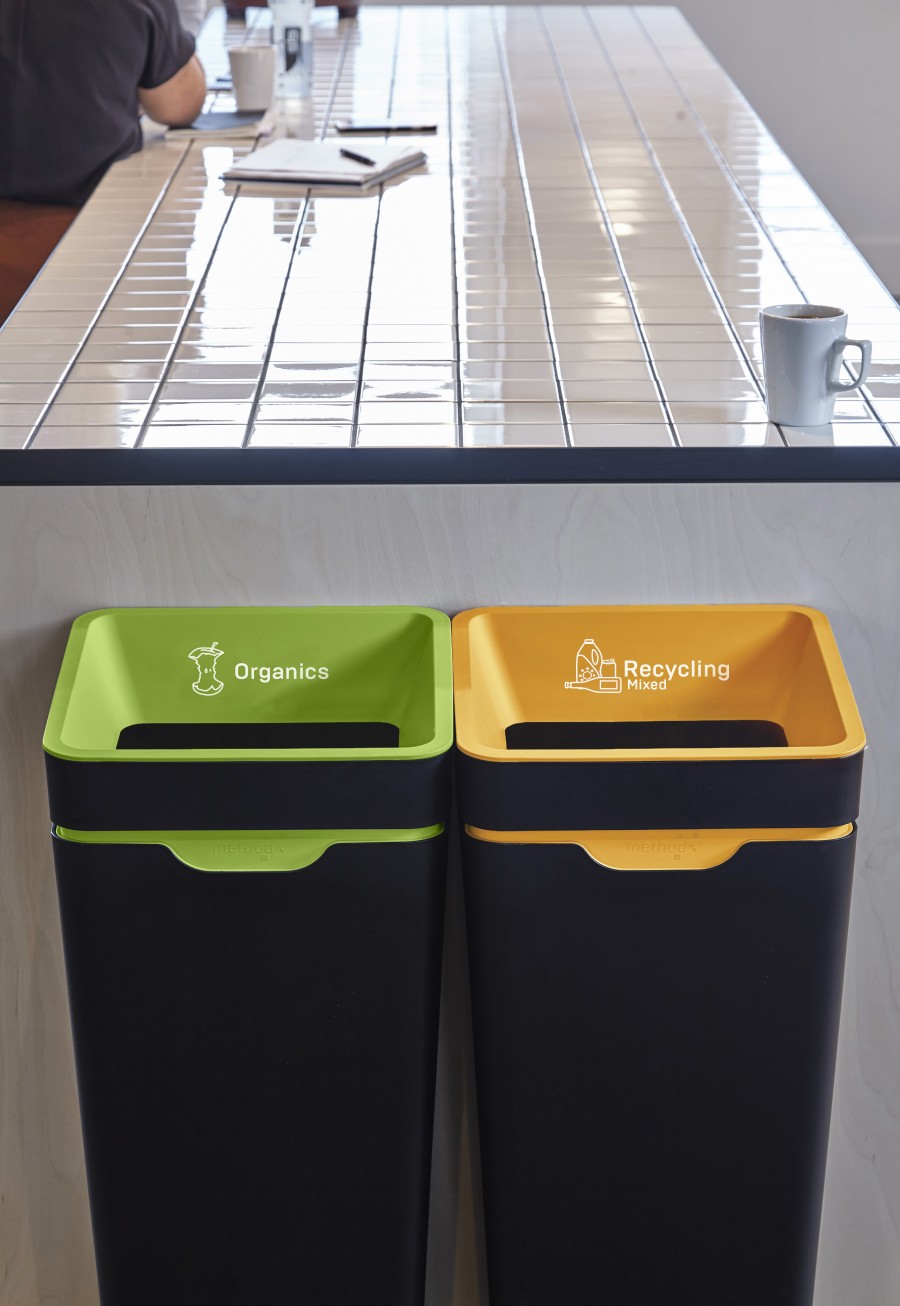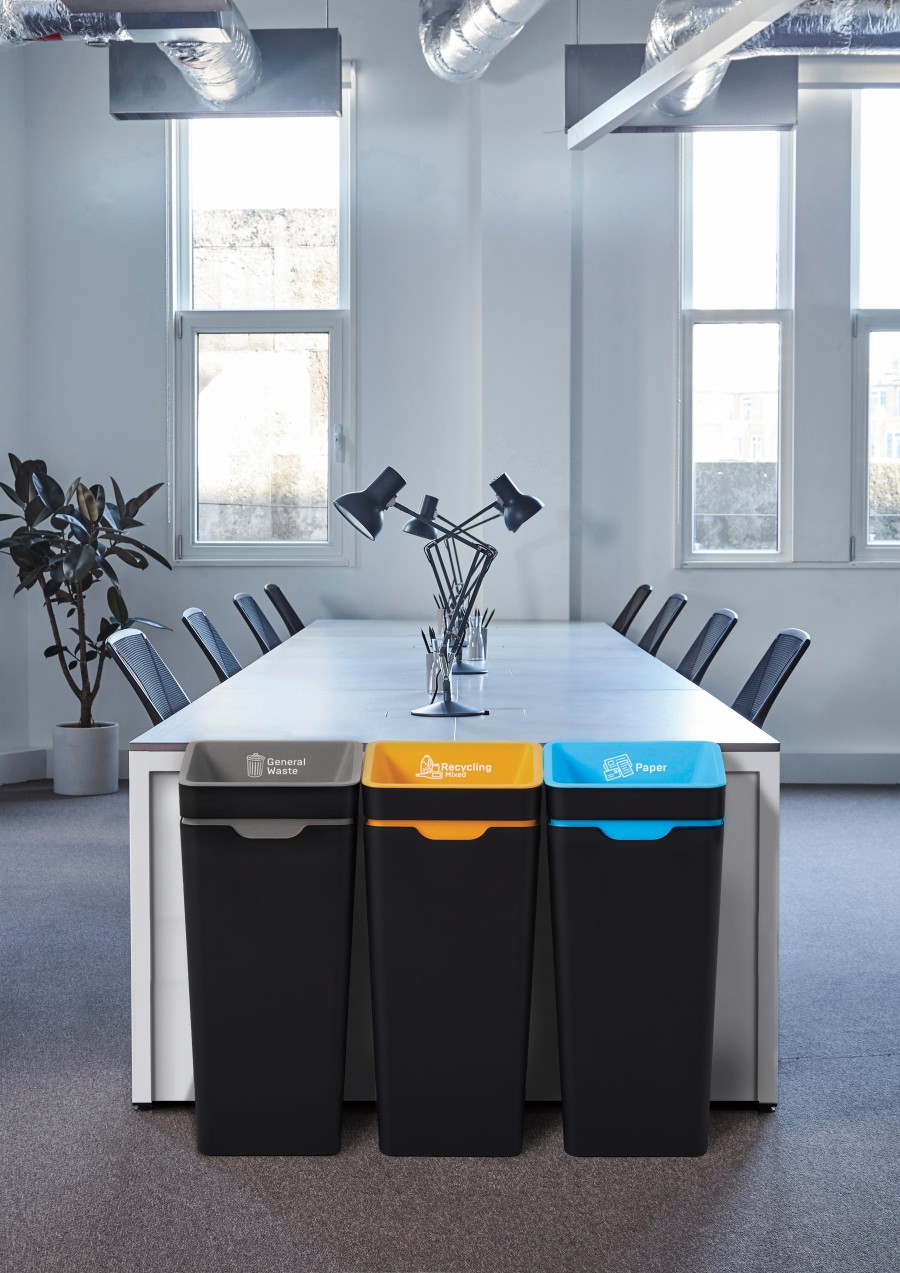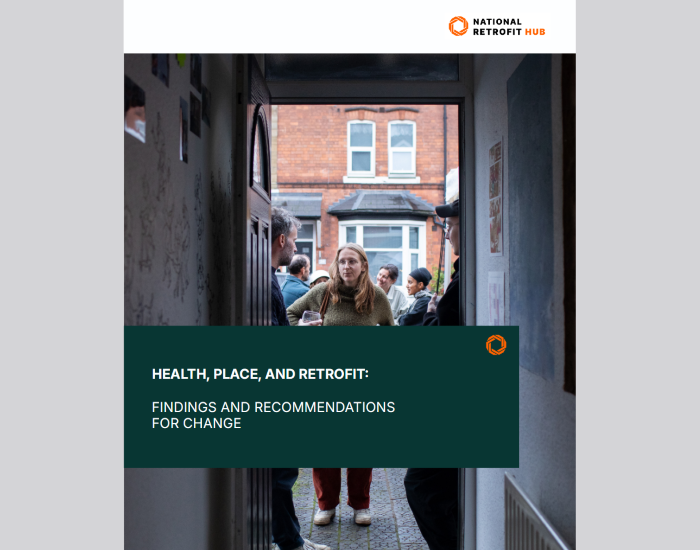A seemingly unimportant factor of a formerly ‘basic’ office fixture became the foundation of the award-winning bins from Method Recycling.
The bins have a proven record of diverting waste from landfill and they’re now featured in leading spaces around the world, including Foster + Partners, The Office Group the Sydney Cricket Ground, Canva, Atlassian, Qantas and many more.
Method began when co-founders Steven and India Korner continuously saw organisations who wanted to recycle without the tools to be successful. Bins and recycling systems had often been an afterthought - with ugly bins hidden in cupboards and kitchens, or desk bins - both of which don’t encourage or facilitate recycling. The Korners believed that a well-designed bin could change the way individuals interact with waste and recycling in the workplace, and it has.
With the desire to make a visible difference they set off on a three-year journey of research and development to understand the needs of all those involved in a buildings waste and recycling process. They held focus groups, developed prototypes, and even helped cleaners on the night shift to gain a truly holistic view and ensure that the bins worked for everyone.
More than just a bin the Korners created a system that is considered, well designed and purposeful. Recycling is no longer an afterthought, but instead a featured part of workspace design.

Open Plan Recycling
Through the design process, they pioneered Open Plan Recycling - a new philosophy of shared workspace recycling and waste.
Method’s beautiful bins are designed to be placed together to form flexible recycling stations, that are then located consistently throughout an open-plan space. These flexible stations mean that organisations can easily adapt the Method system to their needs; adding or moving waste streams as their needs change, or based on feedback from users. Single bins or smaller stations can also be placed where recyclables are produced to maximise results. Such as a paper bin next to the printer, or an organics bin in the kitchen.
In its most simple form, this changes the way that individuals interact with waste and recycling in the workplace. By removing desk bins users are unable to simply throw their waste away without a thought. Instead, recycling bins are available alongside all general waste bins.
Further, having consistent recycling stations throughout a building standardised recycling. Consistency in location, streams and colour-coding means that through regular interaction recycling becomes an unconscious behaviour.
One of the fundamental principles that makes Method’s philosophy successful is visibility - so the appearance of the bins is crucial. Method’s bins are designed to be out in the open as a visible statement of an organisations commitment to recycling and sustainability. Further, the visibility also increases awareness and accountability, while instilling a collective culture of responsibility into an organisation - changing recycling behaviours at work and subsequently at home.
Build sustainable habits into your next fit-out with the behaviour changing bins. Get in touch with Method - methodrecycling.com.






















